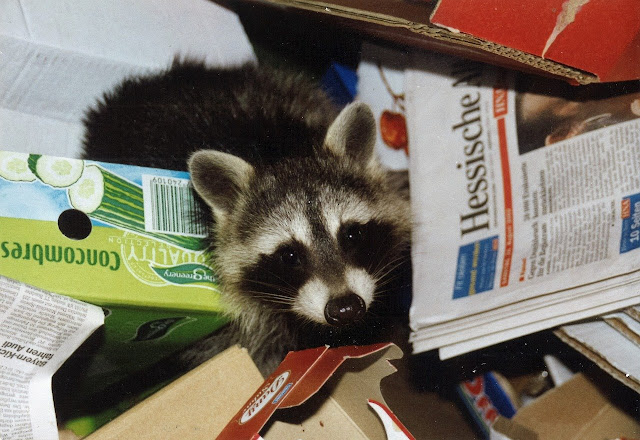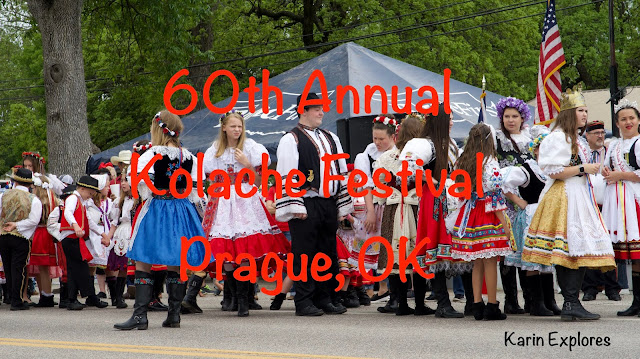Racoons at the Campsite
I am guessing you have found this post because you too are looking for ways to keep those damned trash bandits from waking you up rifling through your camp after dark, or even worse, showing up well before sundown as though they were invited to share a meal! I love camping. Relaxing in the great outdoors, the smell of the clean air, the time spent around the campfire, and sleeping in a warm sleeping bag on a cool morning all call to me, but there is one thing about camping that used to drive me nuts; those blasted raccoons.
Those trash bandits invade established campgrounds as part of their nightly quest for food. Raccoons are omnivores and super smart. Raccoons have learned the eating is good whenever people are around. They thrive on problem solving and, since they travel in groups called a Gaze, they will tag team and work together with their masked friends to get into whatever they seek.
I have been camping long enough to know not to leave food out, to throw trash away, etc., but the fact is other campers do not take the same care I do. Now let's not be too judgy about these other campers. We all had to learn at some point. Many campers will only go on one or two trips in their lifetimes and simply don't know they will need to secure their food and keep a really clean camp. I, myself, once had a raccoon reach in a plastic storage container by wiggling his hand under the lid and pulling out marshmallows. Camping is a challenge especially if you have never done it before. Imagine if the first time you went camping you have a raccoon rob you of all the food you brought while his buddy destroyed your tent to investigate its contents. You might call it quits after one or two trips too. Even worse, there are the folks who think raccoons are just "so cute" and feed them intentionally. Ugh!
But WAIT! Before I get into how I keep raccoons out of my campsite I need to make the following disclaimers: 1) I don't have small children. 2) I don't have any pets that tag along with me. YOU must be vigilant if you have small children or pets to keep them safe. These methods depend on YOU KEEPING YOUR CHILDREN AND PETS SUPERVISED AT ALL TIMES. I can't believe I even have to write this, but seems common sense isn't so common. I am not responsible for you doing a poor job supervising your children and pets.
Ok, now since that is out of the way, let's look at the steps to keep the raccoons from ruining your next camping trip.
Step 1) Keep all food secured in containers with complicated systems of straps and/or locks to prevent raccoons from opening them.
Raccoons can open most standard plastic storage containers and will rip fabric of a backpack or tent with little effort to get to whatever tickles their nostrils. If I am car camping, I put my food containers in the car and lock my cooler. If I don't have my car with me, I store my non-perishables in standard plastic storage containers secured with a luggage strap (designed to keep overstuffed suitcases from exploding all over the baggage claim belt). You can also use a ratchet strap. Stack your containers and secure them with the straps. The idea is to secure the containers shut and prevent the raccoon from even bending the lids reaching their dexterous little hand inside.
If you don't have a vehicle or RV, in addition to the straps, secure the food container(s) to the picnic table or a tree to prevent the raccoons from running off with them in an effort to loot them. Secure your cooler as well. Some folks slide their cooler under the bench of the picnic table (if you have one.) Theoretically this prevents the lid from being opened if they breach the strap.
Step 2) Vinegar to kill food odors:
Wipe down surfaces like the picnic table and any surfaces you might cook on with vinegar after cleaning. I keep a spray bottle filled with white vinegar for this purpose. Add a little vinegar to the rinse water when you do the dishes as well. Raccoons do not like the smell (and bonus, neither do bears) of vinegar. The smell is minimal to us once the vinegar dries, but the raccoons have a much more powerful sense of smell and don't appreciate it whatsoever.
Step 3) Uncomfortable Odors:
Sprinkle a mixture of cayenne and chili pepper around the perimeter of your camp, on the picnic table and seats, on the secured food boxes and cooler, and on the now clean prep surfaces. Sprinkle some around your tent as well. While you are at it, sprinkle cinnamon too, since this will keep ants in check. This dusting of pepper can easily be wiped up with a baby wipe in the morning, but should the raccoons show up, they will get a nose full of pepper. Raccoons are led by their sense of smell and, as you can guess, it isn't pleasant for the raccoons to snort up hot pepper. I bought large containers of Chili Powder and Cayenne Powder I mixed together at home and filled an old empty spice container. I just refill it prior to each camping trip.
Step 4) Unpleasant Odors:
Create unpleasant and uncomfortable odors that will deter and eliminate
Suggestion A - Clear Ammonia: Stuff small plastic containers with paper towel or napkins and pour clear ammonia in to saturate. Close with lids which have predrilled holes in the tops. Raccoons will take a sniff and move along. I put these small containers inside my camp kitchen on each shelf. I buy the small containers at the dollar store and punch holes in the top using a drill, nail, or the super heated end of an ice pick. In the morning I consolidate all the ammonia containers back into a main container which has a tight seal and keep it put away. Depending on how long I am camping, I add more ammonia if the containers dry out. **See disclaimer above
Suggestion B - Moth Balls: Make sachets filled with mothballs to store in and around your camp kitchen. I just fill small burlap bags with moth balls and pull the drawstring. I am careful to pick them all up in the morning and store them in an airtight container. The use of mothballs should never be directly on the ground or in the weather. I use them exclusively in my screen room/kitchen. There are some who will say this is contrary to the intended use of the moth ball product (as directed on the container) and is therefore illegal. I will leave this up to you to decide if you want to use this suggestion or not. **Again, see disclaimer above.
Step 5) Lights and Music:
Some advise campers to leave a light on and a radio playing softly. This has been suggested in much of the literature I have read. I don't do either. I have found that most raccoons don't care if a light is on nor if the radio is playing. Instead I normally yell, "Git, Git!" at the raccoons and shine a flashlight on them. It has been my experience they will retreat for a time, but they will return if the other precautions have not been implemented. But, by all means, give this a try. Just remember there are other campers and they may not appreciate the radio being on. I know I wouldn't.
Step 6) The Last Resort - Pepper Spray/Wasp Spray:
Never approach raccoons. They may look all cute and bandit like, but a raccoon will hurt you. Raccoons will also hurt dogs. Yes, pay attention to what I am saying: Raccoons have been known to kill dogs if they feel threatened or cornered. If a raccoon appears to be aggressive, you may need to pepper spray it. I once hit a raccoon with a blast of bear spray which is a more dispersive version of pepper spray. I only did this as a last resort when it continued to approach my camp time after time. I reported the raccoon to the ranger the next morning.
Bear spray is very expensive ($35 a can) and only has so many blasts in the small canister. In addition to bear spray, I bring a can of wasp spray with me when I camp. Wasp spray can save you from both two legged predators as well as the 4 legged kind. Wasp spray has a stream that travels up to 27 feet, which means I maintain a safe distance from the impending threat.
Wasp spray in a human's eyes will cause intense pain and affect the vision until the antidote is given at a hospital. Wasp spray in the eyes of a raccoon will have a similar effect. The raccoon will be very uncomfortable for several days, but he will be alive. Most likely he will not return to that site again. Just to repeat, pepper spray and wasp spray are a last resort. If you keep a clean campsite and follow the steps above, most encounters will be minimized or eliminated. If those steps do not work, report the raccoon's behavior to a ranger.
Remember: Before you pull the trigger on your pepper spray or wasp spray, pay attention to the direction of the wind and NEVER spray through the screen on your tent. Make sure you have plenty of fresh air and are upwind of whatever you are spraying. **See disclaimer above
Final thoughts:
Please notice, I did not mention the use of a handgun. Gun laws vary from state to state and not all folks know how to properly use a handgun (or shotgun or hunting rifle). While I do carry and have a concealed carry permit with training, shooting a gun in a campground is very dangerous and is considered over the top and unnecessary for most raccoon encounters.
So there you have the steps I use for dealing with the little masked thieves and interrupting their nightly mooching routine.
Happy camping!







Comments
Post a Comment